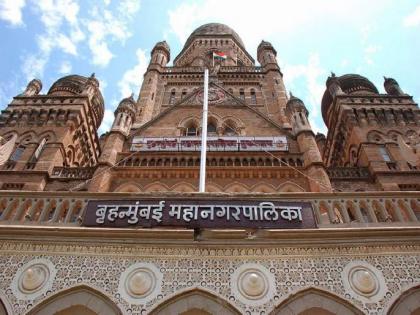Mumbai's Climate Budget: BMC Allocates Rs 10,224 Crores for Environmental Initiatives
By Amit Srivastava | Updated: June 5, 2024 19:14 IST2024-06-05T19:06:23+5:302024-06-05T19:14:08+5:30
The Brihanmumbai Municipal Corporation (BMC) is set to allocate approximately Rs 10,224 crores during the current financial year towards ...

Mumbai's Climate Budget: BMC Allocates Rs 10,224 Crores for Environmental Initiatives
The Brihanmumbai Municipal Corporation (BMC) is set to allocate approximately Rs 10,224 crores during the current financial year towards environmental protection initiatives. This substantial investment underscores the civic body's commitment to making Mumbai a net-zero and climate-resilient city in the coming years. LED lights, plantation drives, landscaping projects, rooftop solar panels, and the establishment of sewage treatment plants in new constructions are among the key focus areas.
Ashwini Joshi, the additional commissioner, presented the Climate Budget Report for the financial year 2024-25 on World Environment Day. She highlighted the concerted efforts being undertaken by various departments including Solid Waste Management (SWM), Storm Water Drains (SWD), and the Mumbai Sewage Disposal Project (MSDP).
The BMC unveiled the Mumbai Climate Action Plan (MCAP) on March 13, 2020, reaffirming its commitment to achieving net-zero emissions and enhancing climate resilience. MCAP serves as a comprehensive roadmap aligning with the goals of the Paris Agreement, aiming to reduce greenhouse gas emissions and integrate climate adaptation strategies to mitigate climate risks effectively.
Joshi revealed that out of the total capital expenditure budget of Rs 31,774.59 crores allocated for the financial year 2024-25, approximately Rs 10,224.24 crores have been earmarked for climate-relevant activities, constituting 32.18% of the total budget. Additionally, Rs 2,163.8 crores have been allocated towards activities integrating components of the MCAP, such as LED lights, plantation drives, rooftop solar, and sewage treatment plants in new constructions, amounting to 6.81% of the capital expenditure budget.
Civic officials outlined waste-to-energy projects, LED light installations, and the adoption of electric vehicles as key measures towards achieving the net-zero emission target. There is also a concerted effort to transition to 100% municipal and private zero-emission vehicles by 2050, alongside a target to reduce landfill waste by 50% by the same year.
The development of the Waste to Energy (WTE) Project at the Deonar Dumping Ground (DDG), capable of converting 600 TPD of municipal solid waste to generate approximately 8 MW of electricity daily, is underway under the SWM department's purview. Furthermore, initiatives like installing rooftop solar panels in peripheral hospitals and transitioning to LED lights are in progress, showcasing the BMC's multifaceted approach towards environmental sustainability and climate resilience.
Open in app